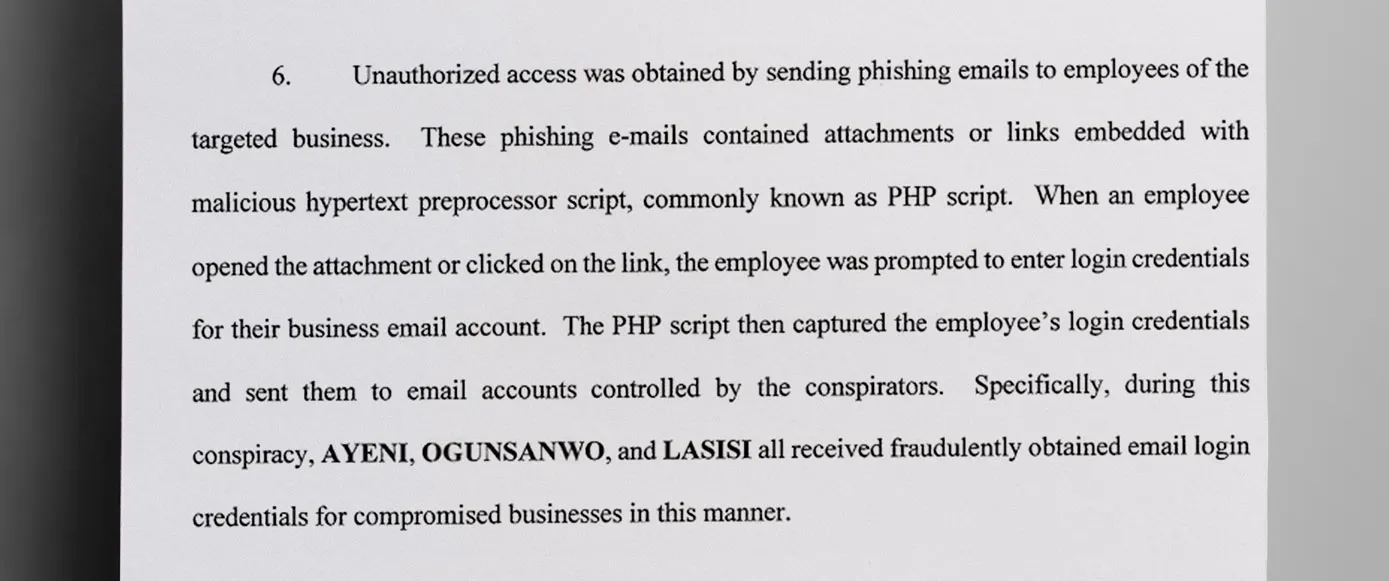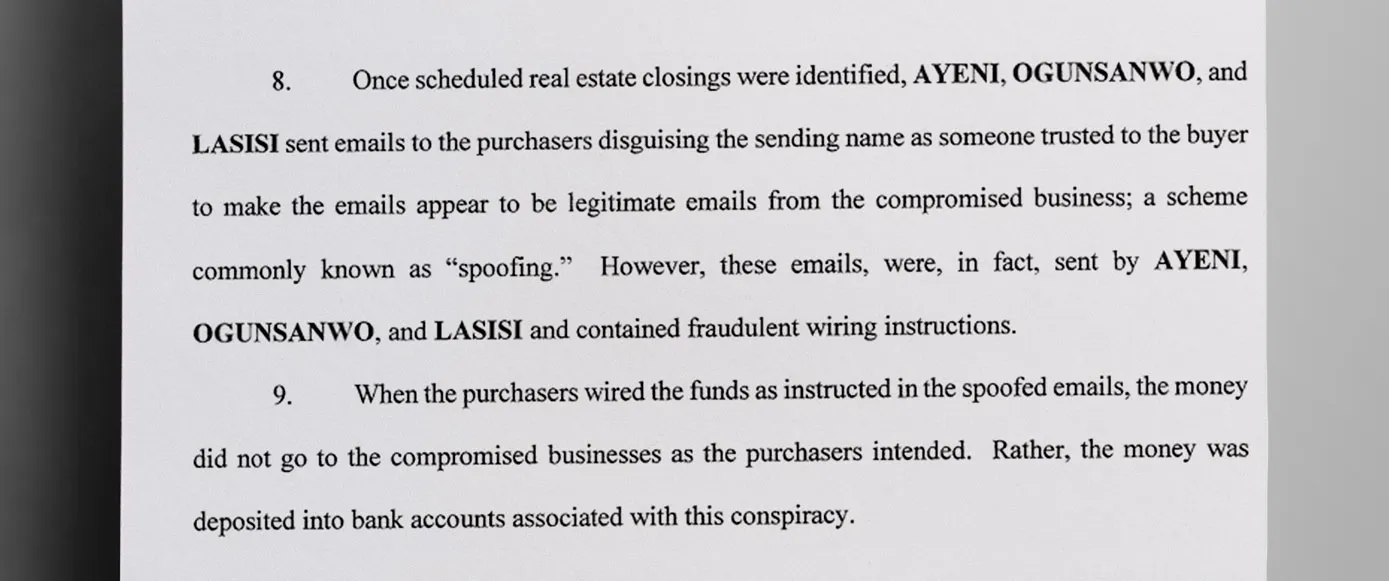Nigerian Gets a Decade in Prison for Role in $20 Million Fraud Conspiracy

A federal court has sentenced Nigerian national Babatunde Francis Ayeni to ten years in prison for participating in a conspiracy that stole a total of $20 million from 400 people.
The sentence comes after Ayeni pleaded guilty on April 9 to one count of conspiracy to commit wire fraud, according to his plea agreement.
Though Ayeni was arrested and extradited to the U.S. to face trial, Ogunsanwo and Lasisi are still at large, according to the DOJ press release. The FBI is actively searching for them and believes them to reside outside of the United States.
Conspirators Targeted Real Estate Company
Ayeni conspired with two partners, Feyisayo Oyindola Ogunsanwo and Yusuf Olasunkanmi Lasisi, to target real estate transitions, according to the indictment. They targeted real estate because it is an industry that regularly uses wire transfers and automated clearing house (ACH) payments.
In the first stage of this scheme, Ayeni, Ogunsanwo and Lasisi sent phishing emails to the employees of their targeted real estate company, as detailed in the indictment. In the emails were attachments or links infected with malicious hypertext preprocessor (PHP) script that prompted people who opened them to log in to their company emails. The PHP script collected the login information and sent it to Ayeni and his co-conspirators.

Monitored Emails to Find Closings
Once Ayeni, Ogunsanwo and Lasisi obtained unauthorized access to the emails of the targeted real estate company employees, they monitored the emails to discover when real estate closings where buyers would make a payment were scheduled, according to the indictment.

After Ayeni, Ogunsanwo and Lasisi found the closings where buyers were going to make a payment, it was onto stage three, where the conspirators created spoofed emails, which are email addresses disguised to resemble legitimate emails from the employees of the targeted companies, according to the indictment.
Ayeni, Ogunsanwo and Lasisi sent these fake emails to the buyers with instructions on where to send the payments. On closing day, when the buyer made the payment, the funds went to Ayeni, Ogunsanwo and Lasisi’s bank accounts and not the targeted real estate company.

Between Nov. 6, 2020, and Jan. 10, 2022, prosecutors tracked payments from real estate purchasers to Ayeni, Ogunsanwo and Lasisi, say prosecutors. During that time, the conspirators defrauded 400 people in the United States, 231 of whom could not reverse or recover the transactions, leading to a collective loss of $19,599,969.46.
What Are Spoofed Emails?
Spoofed emails look legitimate, usually with the same logos, color themes, fonts, and signatures as the emails they are mimicking, but there is at least one letter, number, and symbol off from the original. (i.e., larybird.contracting@info.com vs. lary.birdcontracting@info.com).
As in the university and government auditor scam stories covered by The Daily Muck, the conspirators implemented a business email compromise scheme. Protect yourself by following these tips:
- Do not click on suspicious links, especially if the links prompt you to enter sensitive login information to continue.
- Check the incoming email address carefully for accuracy before responding to any email.
- Avoid downloading email attachments from email addresses you don’t know.
- Call or meet with company officials to confirm the wire transfer details before you send funds.
- Be cautious of emails that give specific wiring information and urge you to send money quickly.
Discover More Muck
First AI-Powered Lawsuit Exposes California’s Eco-Fraud Empire
Feature John Lynn | Apr 10, 2025

Former Child Soldier General Lied to Get Green Card
Report Strahinja Nikolić | Feb 27, 2025

Weekly Muck
Join the mission and subscribe to our newsletter. In exchange, we promise to fight for justice.
Weekly
Muck
Join the mission and subscribe to our newsletter. In exchange, we promise to fight for justice.





